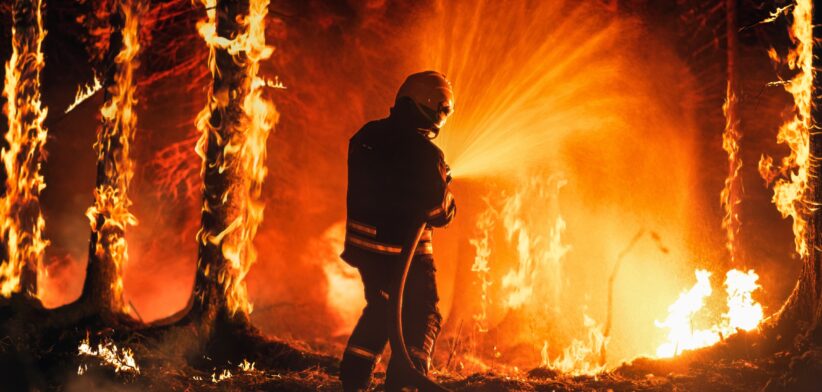Emissions from bush fires have more than doubled over the past 20 years, creating an environment conducive to more fires.
A new study from the University of East Anglia (UEA) in England found carbon dioxide emissions from forest fires had jumped by 60 percent globally since 2001 and almost tripled in some of the most climate-sensitive forests.
Lead author Dr Matthew Jones said the study grouped areas of the world into “pyromes”, regions where forest fire patterns were affected by similar environmental, human, and climatic controls, and revealed the key factors driving recent increases in forest fire activity.
Dr Jones said it was one of the first studies to look globally at the differences between forest and non-forest fires and showed that in one of the largest pyromes, which spanned boreal forests in Eurasia and North America, emissions from fires nearly tripled between 2001 and 2023.
He said significant increases were seen more broadly across the extratropical forests and amounted to an additional half a billion tonnes of CO2 per year, with the epicentre of emissions shifting away from tropical forests and towards the extratropics.
“Increased emissions were linked to a rise in fire-favourable weather, such as the hot-dry conditions seen during heatwaves and droughts, as well as increased rates of forest growth creating more vegetation fuels.
“Both trends are aided by rapid warming in the high northern latitudes, which is happening twice as fast as the global average.”
Dr Jones said the study revealed a worrying increase in not only the extent of forest wildfires over the last two decades, but also their severity.
“Increases in both the extent and severity of forest fires have led to a dramatic rise in the amount of carbon emitted by forest fires globally.
“The carbon combustion rate, a measure of fire severity based on how much carbon is emitted per unit of area burned, increased by almost 50 percent across forests globally between 2001 and 2023.”
He said the shifts in the global geography of fires were a result of the growing impacts of climate change in the world’s boreal forests.
“To protect critical forest ecosystems from the accelerating threat of wildfires, we must keep global warming at bay and this underscores why it is so vital to make rapid progress towards net zero emissions.”
Dr Jones said forests were of worldwide importance for carbon storage, with their growth helping to remove CO2 from the atmosphere and reduce rates of global warming.
He said they also played a crucial role in meeting international climate targets, with reforestation and afforestation schemes being implemented to remove carbon from the atmosphere and offset human CO2 emissions from hard-to-abate sectors such as aviation and certain industries.
“The success of these schemes relies on carbon being stored in forests permanently, and wildfires threaten that.
“More widespread and severe forest fires are a sign that emissions are now out of balance with the carbon captured by post-fire recovery.”
Read the full study: Global rise in forest fire emissions linked to climate change in the extratropics.








